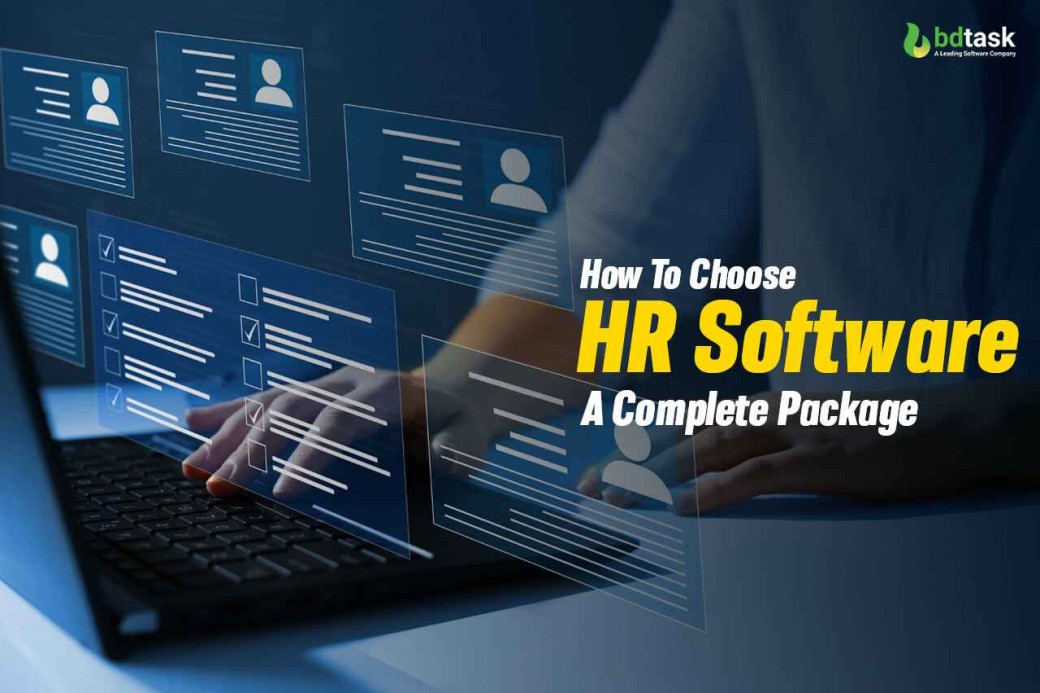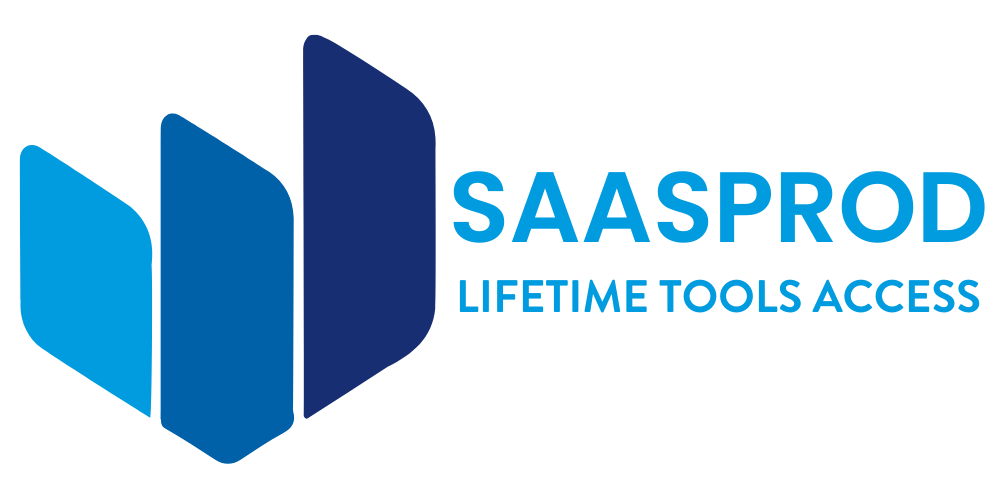Choosing the right HR software can be challenging. With many options available, it’s easy to feel overwhelmed.
HR software can simplify employee management, streamline operations, and enhance productivity. But how do you pick the best one? First, consider your company’s specific needs. Different software offers different features. Think about what matters most to your organization. Do you need robust payroll management?
Or perhaps a focus on recruitment and onboarding? Understanding your requirements will narrow down your choices. Next, consider the ease of use. A complicated system will frustrate your team. Finally, think about scalability. Your business will grow, and your software should grow with it. These factors are key to making the right choice. Ready to dive deeper? Let’s explore how to choose the perfect HR software.

Credit: www.getguru.com
Importance Of Hr Software
HR software plays a critical role in modern organizations. It helps manage employee data, streamline HR processes, and improve overall efficiency. Choosing the right HR software can make a significant difference in your business operations.
Boosting Efficiency
HR software automates repetitive tasks. These tasks include payroll processing and attendance tracking. Automation saves time and reduces errors. It allows HR teams to focus on strategic activities. Efficiency improves as manual processes decrease. This leads to better resource management.
Enhancing Employee Experience
HR software also enhances the employee experience. It provides a centralized platform for all HR services. Employees can access their information easily. They can apply for leave, check payslips, and update personal details. This access reduces the need for HR intervention.
Employees feel more empowered. They have control over their own data. This leads to higher satisfaction and engagement. Happy employees are more productive and loyal.

Credit: www.bdtask.com
Identifying Needs
Choosing the right HR software is crucial for your business. It can streamline operations and enhance employee satisfaction. But first, you need to identify your needs.
Assessing Business Requirements
Begin by understanding your business goals. Are you looking to automate payroll, improve recruitment processes, or enhance employee training? Write down your top priorities.
Consider the size of your company. The HR needs of a small business differ from those of a large corporation. Think about the number of employees and the complexity of your HR tasks.
Reflect on your growth plans. Will your chosen software scale with your business? Ensure it can handle future expansion without requiring a complete overhaul.
Evaluating Current Challenges
Identify the pain points in your current HR processes. Are you spending too much time on manual data entry? Are employees frustrated with outdated systems?
Evaluate the impact of these challenges on your business. Are they causing delays in recruitment or errors in payroll? Quantify the issues to understand their severity.
Seek feedback from your team. Ask them about their experiences with the current system. Their insights can highlight areas that need improvement.
Choosing HR software is not just about features. It’s about solving real problems and aligning with your business needs. Start by assessing your requirements and evaluating your challenges. What do you need most from your HR software?
Key Features To Look For
Choosing HR software requires attention to user-friendly interfaces, scalability, and integration capabilities. Ensure it offers robust reporting and analytics for decision-making. Prioritize security features to protect sensitive employee data.
When choosing HR software, it’s crucial to understand the key features that will benefit your organization. The right features can simplify your workflow, improve accuracy, and save you time. In this section, we’ll explore some essential features to look for in HR software.User-friendly Interface
A user-friendly interface is vital. If the software is hard to navigate, your team may avoid using it. Consider your daily routine. Would you prefer software that requires minimal clicks to complete a task? Look for intuitive designs with clear labels and straightforward menus. Remember, a simple interface can significantly reduce training time. This means you can get your team up and running quickly, saving both time and resources.Comprehensive Reporting
Comprehensive reporting capabilities are another must-have. You need software that offers detailed and customizable reports. Imagine being able to generate a report on employee performance in just a few clicks. This can help you make informed decisions quickly. Look for HR software that allows you to filter data easily. This can help you find specific information without sifting through irrelevant data. In conclusion, focusing on these key features—user-friendly interface and comprehensive reporting—can make a significant difference. They can enhance productivity and ensure you get the most out of your HR software. Are there any other features you consider essential for HR software?
Credit: peoplemanagingpeople.com
Integration Capabilities
Choosing the right HR software can be challenging. Integration capabilities are crucial. They ensure the software works well with your current systems. This makes the transition smooth. Below, we will explore key aspects of integration capabilities.
Compatibility With Existing Systems
The HR software must be compatible with your existing systems. Check if it integrates well with your payroll, accounting, and other tools. This avoids disruptions and ensures a smooth workflow. Compatibility means your team can continue using familiar systems. This reduces the learning curve.
Ease Of Data Migration
Data migration is moving your existing data to the new HR software. This process should be simple and quick. Look for software that offers easy data import options. Automated tools can help transfer data accurately. This saves time and reduces errors. A smooth data migration ensures no vital information gets lost.
Scalability
Choose HR software that can grow with your business. Scalability ensures the system adapts as your needs evolve. This flexibility saves time and money in the long run.
Choosing HR software is a crucial decision for any business. One key factor to consider is scalability. As your business grows, your HR software should grow with it. Scalability ensures that your software can handle increasing data, users, and functionalities without compromising performance.Adapting To Business Growth
Your business is dynamic, and your HR software should be too. As you hire more employees and expand operations, your HR system must seamlessly adapt. Imagine your company doubles in size within a year. Your HR software should support this growth without needing a complete overhaul. Ask yourself, can the software handle a sudden influx of employee data? Will it manage increased user activity efficiently? These are crucial questions to ensure your HR software adapts to your business growth.Flexible Customization Options
Every business has unique needs. Your HR software should offer flexible customization options to meet these requirements. For instance, you might need to add specific fields for employee data or customize reports to fit your management style. Can your software accommodate these changes easily? Look for software that allows you to tailor features without needing extensive technical knowledge. This flexibility ensures your system remains relevant and useful as your business evolves. In summary, scalable HR software is vital for growing businesses. It should adapt to increasing demands and offer flexible customization options. Does your current HR software meet these criteria? If not, it might be time to explore new options.Security Measures
Choosing the right HR software is crucial for any organization. One key aspect to consider is security measures. Your HR software will handle sensitive employee data, so it is essential to ensure it is secure. This section covers key security measures to look for when selecting HR software.
Data Protection
Data protection is paramount in HR software. The software should have strong encryption to protect data. Encryption keeps data safe during transmission and storage. Look for software that uses advanced encryption standards.
Also, consider access control features. The software should allow you to set different access levels. This ensures only authorized personnel can access sensitive information. Multi-factor authentication adds an extra layer of security.
Compliance With Regulations
Compliance with regulations is another critical factor. Your HR software must comply with data protection laws. This includes GDPR, CCPA, and other local regulations. Non-compliance can result in hefty fines and damage to your reputation.
The software should offer tools to help you maintain compliance. Regular updates are also important. They ensure the software stays compliant with new regulations. Check if the vendor provides compliance support and resources.
Vendor Reputation
Choosing the right HR software involves many factors. One crucial aspect is the vendor’s reputation. A well-regarded vendor can make a significant difference. They provide reliable software, excellent support, and continuous updates.
Customer Reviews
Customer reviews offer valuable insights. Read reviews on trusted platforms. Look for common themes in feedback. Are customers happy with the support? Is the software user-friendly? Positive reviews often indicate a trustworthy vendor.
Industry Recognition
Industry recognition is another key factor. Awards and certifications show that the vendor meets high standards. Recognized vendors often lead in innovation. They stay updated with industry trends. This ensures your HR software is future-proof.
Cost Considerations
Evaluate the total costs, including setup, subscription, and maintenance fees. Compare features and benefits to ensure value for money.
Choosing HR software is a significant decision for any business. One of the most crucial aspects to consider is the cost. You need to ensure that the software fits your budget while providing the necessary features. This section will help you navigate the cost considerations of HR software. ###Budget Planning
Before diving into the options, start with a clear budget plan. Determine how much you are willing to spend on HR software annually. It’s essential to have a realistic figure based on your company’s size and needs. Think about the long-term benefits and how the software can streamline your HR processes. Investing in quality software can save you money in the long run. Don’t forget to involve key stakeholders in your budget planning. Their input can provide a more comprehensive view of what is essential. ###Hidden Costs
Hidden costs can catch you off guard. Be mindful of additional charges that may not be immediately apparent. These can include setup fees, training costs, and future upgrades. Ask the vendor for a detailed breakdown of all costs. This will help you avoid any surprises later on. Also, consider the cost of integrating the software with your existing systems. Maintenance and support fees can add up quickly. Ensure you know what is included in your package and what might cost extra. When I chose HR software for my company, the hidden costs almost doubled our initial budget. Always read the fine print and ask questions. Choosing the right HR software involves careful cost consideration. Plan your budget and be aware of any hidden costs. This way, you can make an informed decision that benefits your company in the long run. What are some unexpected costs you’ve encountered when choosing software? Share your experiences in the comments below!Training And Support
Choosing the right HR software is crucial for your business. A key aspect to consider is the training and support provided by the software vendor. Your team needs to understand how to use the software effectively and have access to help when problems arise. Here’s a closer look at what you should expect in terms of training and support.
Onboarding Assistance
Onboarding is the first step in getting your team up to speed with new HR software. Look for vendors that offer comprehensive onboarding assistance. This should include detailed tutorials, guided walkthroughs, and access to a knowledgeable support team.
Consider the format of the onboarding assistance. Are there live training sessions, or is everything pre-recorded? Live sessions can be more interactive and allow for immediate questions. Pre-recorded sessions, on the other hand, can be accessed at any time, which is great for flexibility.
Check if the vendor provides onboarding documentation. A well-written user manual or a series of FAQ articles can be invaluable. These resources can help your team navigate the software without always needing to contact support.
Ongoing Technical Support
Even after the initial onboarding, your team will likely have questions or encounter issues. This is where ongoing technical support becomes crucial. Ensure the vendor offers reliable support options, such as a 24/7 helpline, email support, or live chat.
Evaluate the responsiveness of the support team. Fast response times can be a lifesaver when you face an urgent issue. You might want to ask the vendor for their average response time and check online reviews to confirm their claims.
It’s also beneficial if the vendor offers regular software updates and maintenance. This ensures that your HR software remains secure and up-to-date with the latest features. Regular updates can also fix bugs and improve overall user experience.
Choosing HR software with robust training and support options can make a significant difference. It can streamline your onboarding process and provide continuous assistance whenever needed. What kind of support do you value most when using new software?
Making The Final Decision
Choosing the right HR software is a crucial task for any business. The final decision involves careful consideration of various factors. This section will guide you through making the best choice for your company.
Comparing Options
Start by listing all the HR software options you are considering. Compare their features, pricing, and customer reviews. Look for software that aligns with your business needs. Check if the software offers necessary integrations with your existing systems.
Evaluate the user interface and ease of use. Your team should find the software intuitive. Consider the scalability of the software. It should grow with your business. Make sure to compare the customer support options available. Good support can save you time and stress.
Seeking Expert Advice
Consulting with an HR expert can be beneficial. They can provide insights based on their experience. An expert can help identify the strengths and weaknesses of each option. They can also suggest features that you might have overlooked.
Attend webinars or workshops on HR software. These events can offer valuable information. Networking with other businesses can also be useful. Learn from their experiences. Their feedback can help you avoid common pitfalls.
Once you have all the information, make a well-informed decision. Choose the software that best fits your company’s needs and goals.
Frequently Asked Questions
How Do I Select An Hr System?
Choose an HR system by defining your needs, setting a budget, researching options, reading reviews, and requesting demos.
Which Software Is Best For Hr?
BambooHR is highly recommended for HR management. It’s user-friendly, offers robust features, and supports various HR tasks efficiently.
What Is The Best Hr Software?
The best HR software includes BambooHR, Workday, and Zenefits. They offer comprehensive features for employee management, payroll, and recruitment.
How To Choose A Hris?
Choose a HRIS by evaluating your company’s needs, budget, user-friendliness, integration capabilities, and support services. Prioritize scalability and customization.
Conclusion
Selecting the right HR software simplifies your business processes. It saves time and reduces errors. Assess your needs before making a choice. Compare features, ease of use, and cost. Read reviews and ask for demos. Choose a solution that fits your team’s needs.
The right HR software boosts productivity and improves efficiency. Take the time to make an informed decision. Your business will thank you.


